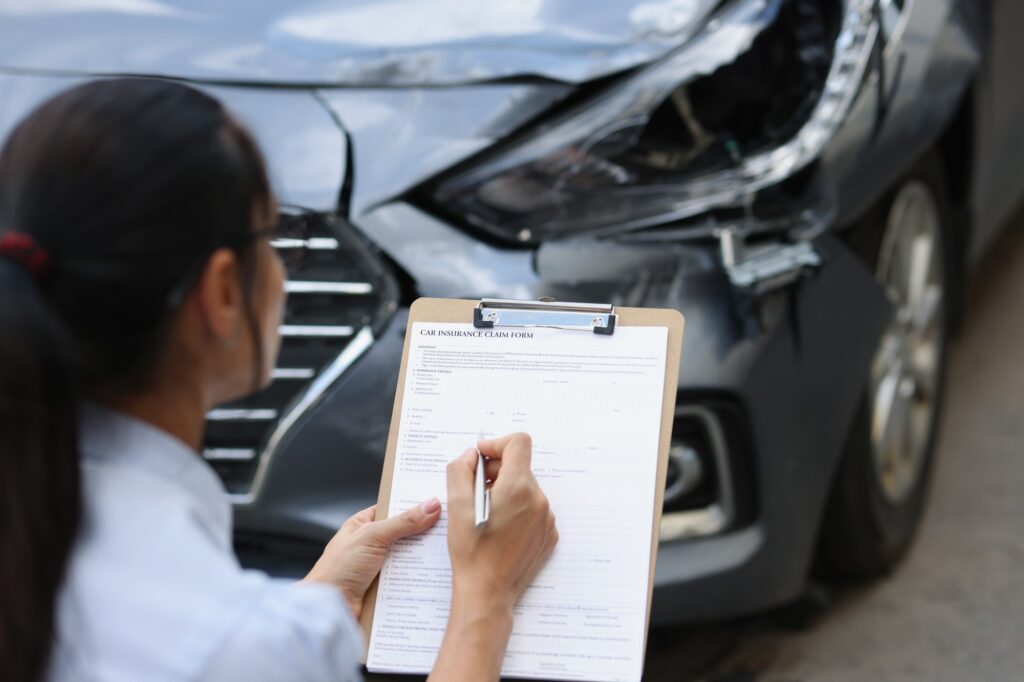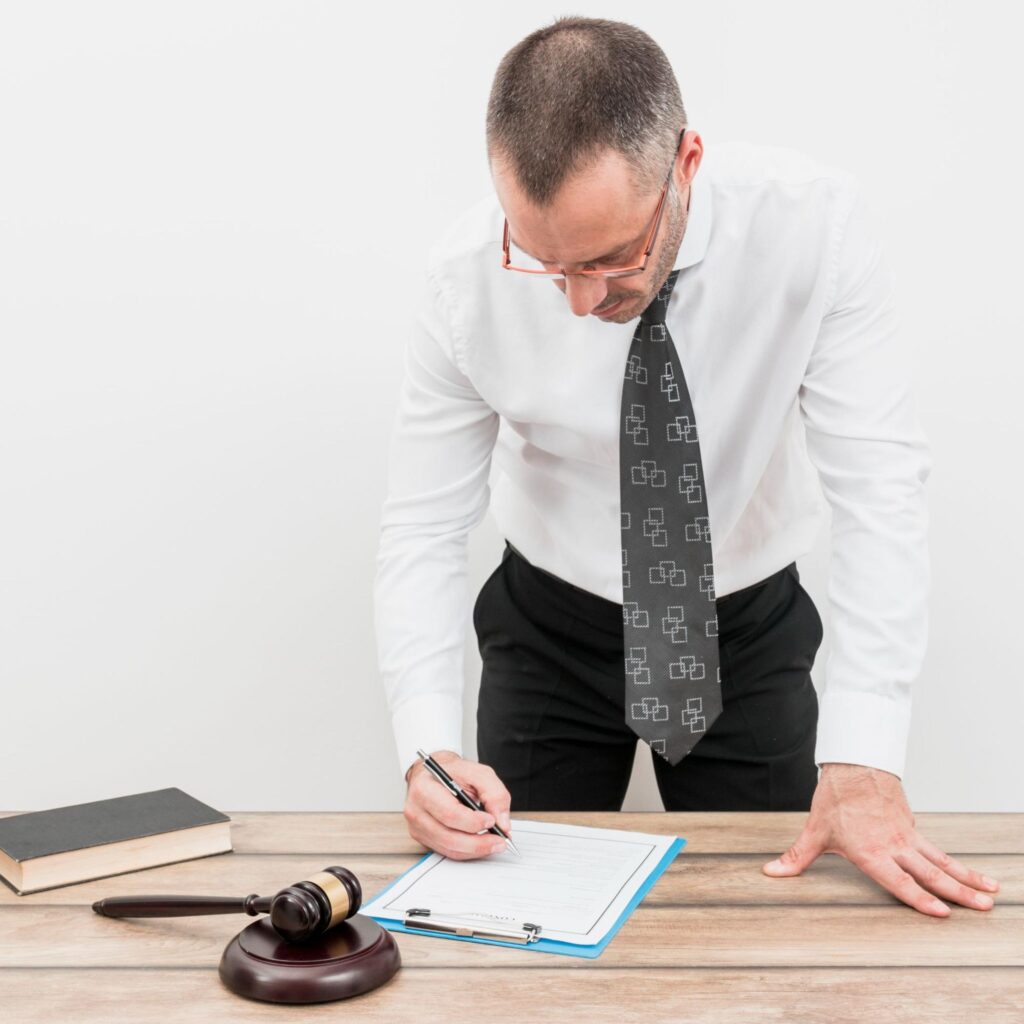
Experiencing a hit-and-run incident can be distressing, particularly when it involves a parked car. In Georgia, victims of Georgia hit and run parked car incidents should be aware of their rights and responsibilities in such situations.
This article aims to provide guidance on understanding hit-and-run incidents, immediate steps to take, navigating legal aspects, dealing with insurance companies, and seeking legal help.
Understanding Hit-and-Run Incidents
A hit-and-run happens when a driver causes an accident, such as hitting a parked car, and leaves the scene without offering their information or helping the other party. Shockingly, a study found that in 2016 alone, there were 1,980 fatal hit-and-run crashes, leading to 2,049 deaths.
Definition of a Hit-and-Run
According to Georgia law, a hit-and-run is leaving the scene of an accident without giving relevant vehicle and driver information to the impacted individual. This applies to collisions involving both parked and occupied vehicles.
The law requires drivers involved in accidents to stop and provide their details or assist the injured party if necessary.
Common Causes of Hit-and-Run Incidents
While hit-and-run incidents can stem from various reasons, some common causes include:
- Fear of Consequences: Drivers may flee because they fear legal repercussions, particularly if they are uninsured or intoxicated.
- Panic: Accidents can induce panic, leading drivers to leave the scene without thinking.
- Inexperience: Young or inexperienced drivers may not know the correct actions to take after an accident.
- Distraction: Distracted driving can cause accidents that lead drivers to avoid responsibility.
In addition to these common causes, societal factors can also significantly increase the prevalence of hit-and-run incidents. For instance, urban areas with heavy traffic and a fast-paced lifestyle may contribute to a higher incidence of such accidents.
Drivers in these environments might feel more pressure to escape the scene, fearing that stopping could lead to further complications, such as traffic jams or confrontations.
Furthermore, the anonymity provided by crowded streets can embolden some individuals to flee, believing they are less likely to be identified or caught.
Moreover, the emotional and psychological aspects surrounding hit-and-run incidents cannot be overlooked. Many drivers who commit hit-and-runs may struggle with guilt and anxiety after the fact, especially if they realize the severity of the accident or the potential harm caused to others.
This internal conflict can lead to a cycle of avoidance, where the driver feels compelled to evade responsibility rather than confront the consequences of their actions.
Understanding these underlying motivations can help develop more effective prevention strategies and educational programs to promote safer driving behaviours and accountability on the road.
Immediate Steps to Take After a Hit-and-Run
If you are a victim of a hit-and-run, it’s crucial to remain calm and take specific actions to protect your interests and ensure your safety.
Ensuring Safety at the Scene
First and foremost, ensure your safety and the safety of others. If you can, move your vehicle to a safe area to prevent further incidents. Turn on your hazard lights and, if necessary, warn other drivers by using road flares or warning triangles.
In addition, check on any passengers or other individuals involved in the incident. If anyone is injured, call for medical assistance immediately. Prioritizing health and safety is paramount, as injuries may not always be immediately visible.
Documenting the Incident

After securing safety, begin documenting the scene. This includes:
- Taking note of the time and location of the incident.
- Recording any visible damages to your car and the surroundings.
- Gathering information from any potential witnesses. Their contact details might be invaluable for any claims.
- Using your smartphone to take photos of any damages, the position of the vehicles, and relevant road signs.
Additionally, consider writing down any details about the other vehicle involved, such as its make, model, color, and any part of the license plate you may have seen. Even small details can help police in their investigation.
If you have a dashcam, review the footage to see if it captured the incident or any relevant details that could assist in identifying the fleeing driver.
Reporting to the Police
Once you have documented the scene, contact the police to report the hit-and-run. Provide them with as much information as possible, including your documentation. Filing a police report is essential not only for legal purposes but also for future insurance claims.
Ask for a copy of the report, as it will be crucial when dealing with your insurance company. If witnesses saw the incident or surveillance cameras are nearby, the police may also be able to identify the responsible driver.
In some cases, they might even be able to track down the vehicle through nearby traffic cameras or license plate readers, which can significantly aid in your pursuit of justice.
After the police have been notified, contacting your insurance company as soon as possible is also wise. Inform them of the incident and provide them with the police report number and any documentation you gathered.
This proactive approach can expedite the claims process and ensure you receive the support you need during this stressful time.
Navigating Georgia’s Hit-and-Run Laws
Understanding the legal implications of a hit-and-run in Georgia is vital, both for victims and perpetrators. Knowing the laws can help you navigate the aftermath of the incident more effectively.
Legal Consequences for the Perpetrator
In Georgia, the penalties for a hit-and-run incident can be severe. If found guilty, a perpetrator may face:
- Fines ranging from $300 to $1,000.
- Possible imprisonment, particularly if the incident resulted in injury.
- Points on their driving record, which can lead to increased insurance rates.
Moreover, the severity of the penalties can escalate based on the circumstances surrounding the incident. For instance, if the hit-and-run results in serious bodily injury or death, the charges may elevate to a felony level, which carries harsher penalties, including longer prison sentences and higher fines.
Additionally, a conviction can lead to a permanent criminal record, which can have long-lasting effects on employment opportunities and personal reputation.
Anyone involved in such incidents must understand these potential repercussions. They underscore the importance of accountability and the legal obligation to stop and provide assistance.
Rights of the Victim
As the victim in a hit-and-run, you have specific rights under Georgia law. These include:
- The right to file a claim with your insurance company, even if the perpetrator is not identified.
- The right to seek damages for property loss or injury.
- The right to receive updates on the police investigation if reported to law enforcement.
Victims may also have the right to pursue compensation through uninsured motorist coverage, which can be particularly beneficial if the responsible party cannot be located. This coverage is designed to protect drivers from financial loss when involved in accidents with uninsured or unidentified drivers.
Furthermore, victims should be aware that they can gather evidence, such as photographs of the accident scene, witness statements, and police reports, to support their claims.
This proactive approach can significantly bolster their case when seeking damages or during legal proceedings. Understanding these rights and options can empower victims to take the necessary steps toward recovery and justice following a hit-and-run incident.
Dealing with Insurance Companies
Interacting with insurance companies can be intimidating, especially after a distressing incident such as a hit-and-run. Understanding how to navigate this process can alleviate some of that stress.
Filing a Claim
If your vehicle is damaged due to a hit-and-run, you will likely need to file a claim with your insurance company. Steps for filing a claim include:
- Contact your insurance company as soon as possible.
- Provide them with the police report and any documentation you collected.
- Be honest and thorough in describing the incident to avoid complications.
It’s also advisable to take photographs of the damage to your vehicle and the scene of the incident, as these can serve as crucial evidence for your claim. Additionally, if there were any witnesses to the accident, gathering their contact information can strengthen your case.
The more detailed and organized your documentation, the smoother the claims process will likely be, potentially speeding up the time it takes to receive compensation.
Understanding Uninsured Motorist Coverage
Georgia law requires all drivers to carry liability insurance, but not all comply. If the at-fault driver is never identified, you might be able to use your uninsured motorist coverage. This type of insurance helps cover damages when involved in hit-and-run accidents or accidents with uninsured drivers.
Review your insurance policy to see if you have this coverage, as it can provide a safety net in circumstances like these. It’s important to understand the limits of your uninsured motorist coverage, as some policies may have specific caps on the amount they will pay out.
Additionally, consider discussing your options with your insurance agent, who can clarify how this coverage works and what steps you need to take to utilize it effectively. Being well-informed can empower you during this challenging time, ensuring that you are prepared for any financial implications that may arise from the incident.
Seeking Legal Help

After a hit-and-run, consulting with a legal professional can help protect your rights and guide you through the often convoluted claims and litigation process. The emotional toll of such an incident can be significant, and having a knowledgeable advocate by your side can alleviate some of that stress while ensuring that you receive the compensation you deserve.
When to Consult a Lawyer
It’s advisable to consult a lawyer if:
- Injuries were sustained as a result of the incident.
- You encounter difficulties with your insurance company.
- You wish to pursue legal action against the perpetrator and need expert advice.
Choosing the Right Legal Representation
When searching for an attorney, consider their experience handling hit-and-run cases and familiarity with Georgia’s traffic laws. Look for someone who is responsive and proactive in advocating for your rights.
A good lawyer will help you navigate the complexities of your case effectively. Additionally, seeking reviews or testimonials from previous clients may be beneficial to gauge their satisfaction and the attorney’s track record in similar cases.
Overall, the aftermath of a hit-and-run incident can be overwhelming, but knowing your rights and how to respond can make the process more manageable. Understanding insurance claims, navigating legal frameworks, and ensuring your safety at the scene are vital components of handling such a situation appropriately.
It’s also crucial to gather as much evidence as possible, including photographs of the scene, witness statements, and any available surveillance footage, as this information can significantly bolster your case.
Moreover, the emotional and psychological impact of a hit-and-run can linger long after the physical injuries have healed. Victims may experience anxiety, fear, or even post-traumatic stress as a result of the incident.
Seeking legal help can help obtain financial compensation and provide a sense of closure and justice as your attorney diligently works to hold the responsible party accountable.
Engaging with support groups or counselling services may also be beneficial in navigating the emotional aftermath of such a traumatic experience.
Conclusion
Experiencing a hit-and-run can be overwhelming, but knowing your rights and taking the right steps can make all the difference. From understanding Georgia’s laws to navigating insurance claims, you don’t have to face it alone.
Call Howe Law today for a free consultation at 888-559-7033. We’re available 24/7 to provide the support and legal guidance you need. You can also visit us online at howe.law/contact-us/.
Related Articles


























































